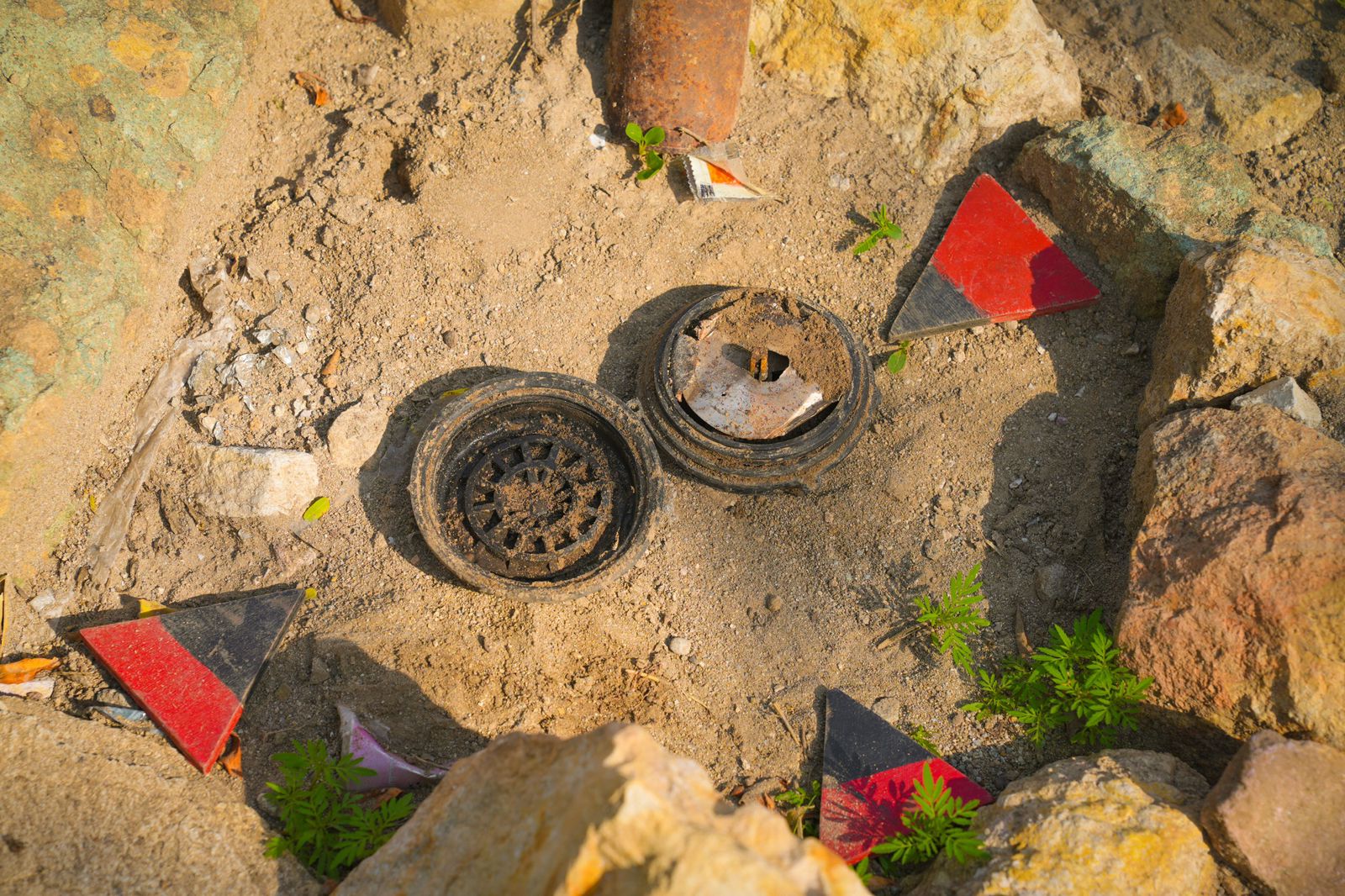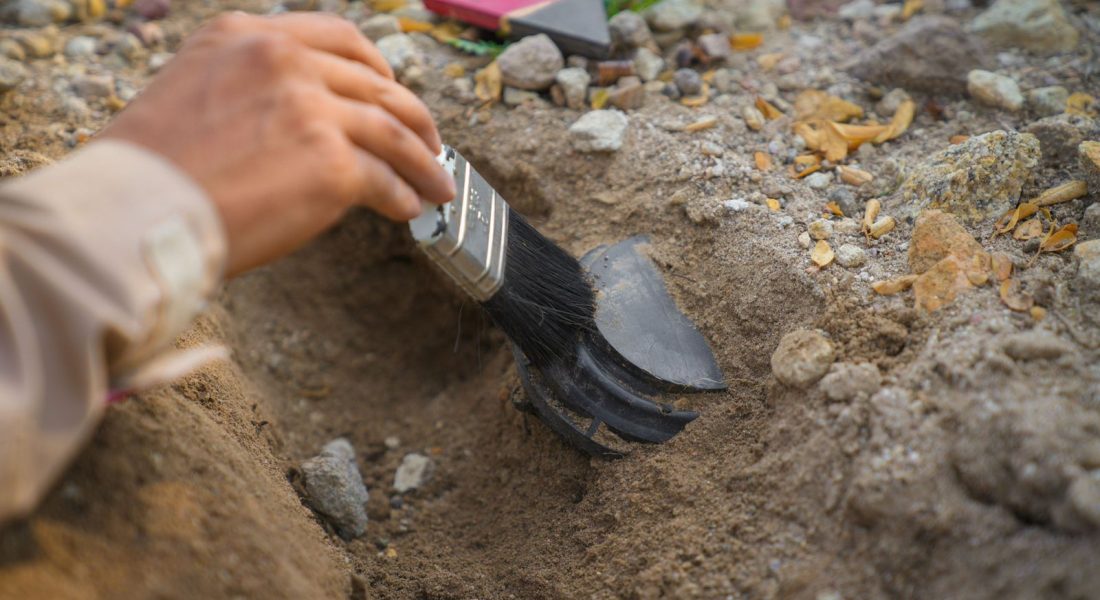The Al-Tabba Al-Bayda area, located between the Thaabat and Hassanat regions east of Taiz city in southwestern Yemen, has begun its recovery from landmines after Team 33 of Project Masam secured a new minefield, in response to repeated reports from residents.
For years, the area was heavily contaminated with landmines and other explosive remnants of war, planted during the conflict by Houthi forces to block movement and intimidate civilians. Taiz has been one of the most heavily affected governorates in Yemen’s war; since 2015, Houthi forces have imposed a partial siege on Taiz city, turning surrounding areas into frontlines. As a result, the governorate has become one of the most mine-contaminated regions in the country, with roads, farmland, and residential areas left unsafe for civilians and cutting people off from their livelihoods in a society that depends largely on farming and livestock.
In Al-Tabba Al-Bayda, these challenges have been felt acutely. Once caught on the frontlines and left contaminated by mines, the community has lived for years in fear and isolation. For families who rely on agriculture and livestock, every day meant risking lives to reach fields, graze animals, or even move between homes, but for residents of Al-Tabba Al-Bayda, clearance now marks the beginning of a safer future.
Team Leader Engineer Faisal Al-Majidi explained that the cleared site was particularly dangerous because of its proximity to residential homes and because a cemetery lay above it, making it a common passageway for locals. The team secured 450 square meters of land, removing two banned anti-personnel mines, five mortar shells, and four unexploded fuses. Al-Majidi said the operation eliminated an immediate danger that had long disrupted daily life.
Residents welcomed the operation, describing the sense of relief it brought. “We used to live in constant anxiety, but today we feel a sense of security,” one local said. “We hope the work will continue until the entire area is cleared.”
Since its launch in mid-2018, Project Masam has removed more than 513,000 landmines, improvised explosive devices, and unexploded ordnance across liberated areas of Yemen. In Taiz and other governorates, demining is essential not only for saving lives but also for restoring access to farmland, rebuilding local economies, and enabling displaced families to return safely. Clearance efforts in areas like Al-Tabba Al-Bayda highlight both the scale of Yemen’s landmine crisis and the vital role humanitarian projects play in creating the conditions for recovery.


